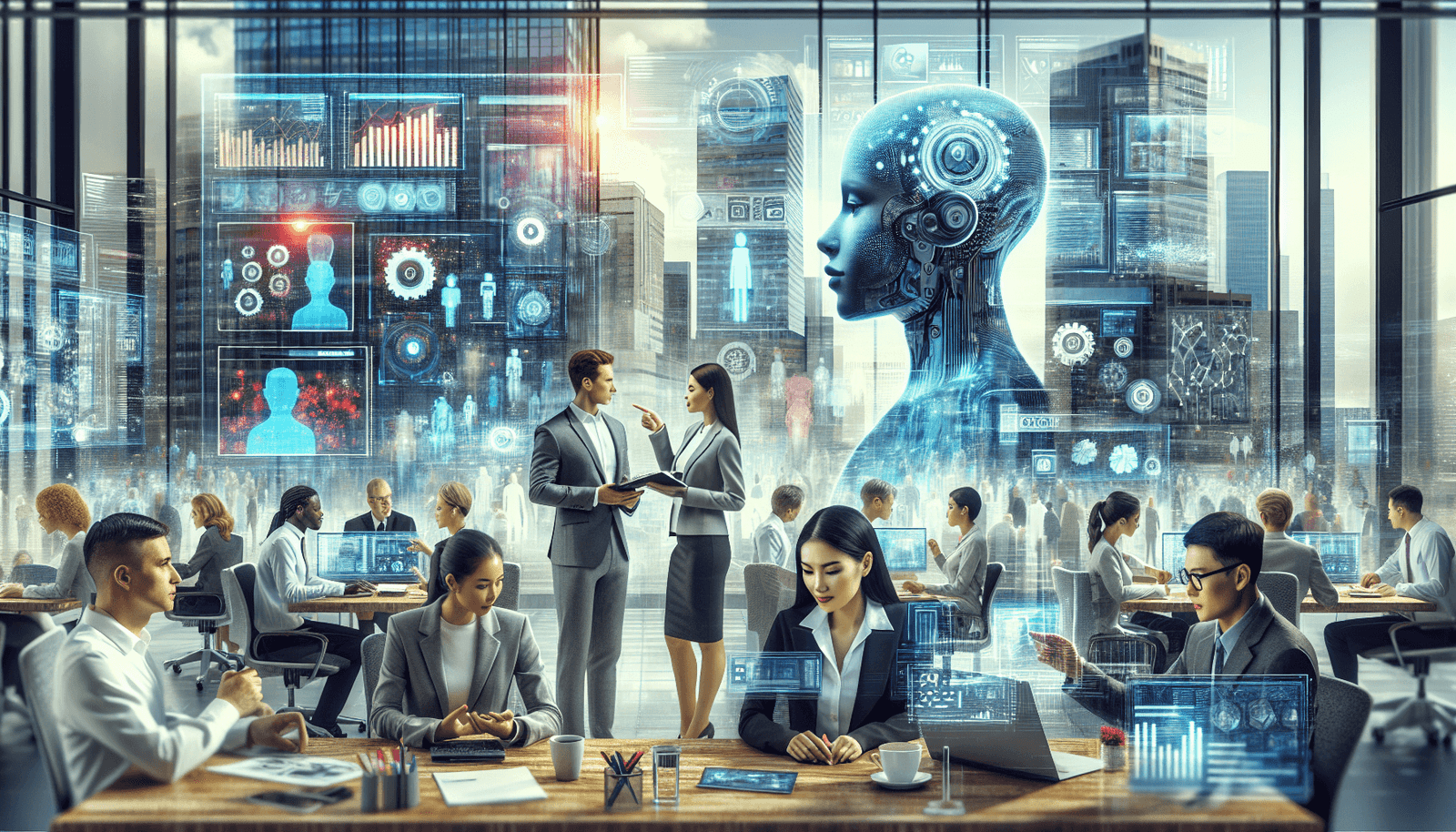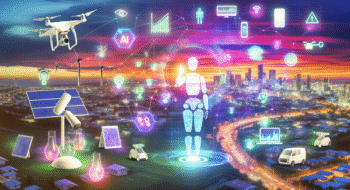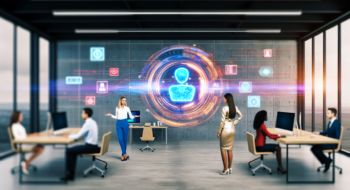Artificial intelligence (AI) has long been a topic of debate, often raising concerns about job displacement in various industries. However, recent insights from experts suggest a more optimistic outlook: rather than leading to widespread job losses, AI may actually result in a net increase in employment opportunities. With advancements in technology transforming the workplace, it’s crucial to explore how AI can create new roles, enhance productivity, and drive economic growth. This article delves into the potential positive impact of AI on the job market and the evolving dynamics between humans and machines.
Welcome to the Future: AI and Job Creation
Unease. That’s what many people feel when they hear about artificial intelligence. The gut reaction often revolves around one nagging thought: “Will machines take my job?” It’s a valid concern, but here’s the twist: experts argue that AI could very well create more jobs than it eliminates. A fascinating idea, wouldn’t you say? But how can that be? Let’s explore this promising landscape.
A New Era of Possibilities
The notion that AI could generate more job opportunities is supported by various studies and reports, including findings from eminent researchers and organizations. As automation takes over mundane, repetitive tasks, workers are freed up to focus on more creative, high-thinking roles. Consider the following:
- Automation as a Boon: Historically, technological advancements have led to a transition, allowing humans to engage in more complex responsibilities. The Industrial Revolution, they argue, placed humans in more skilled roles, rather than depleting the workforce.
- Market Expansion: New technologies often lead to the creation of entirely new markets. Think about how the internet birthed millions of jobs that didn’t even exist a generation ago!
Industry Specific Growth
Let’s take a closer look at industries where AI is set to have transformative effects:
- Healthcare: AI is making waves in healthcare, aiding doctors in diagnostics, treatment plans, and managing patient care. This doesn’t replace healthcare professionals; instead, it enhances their capabilities, allowing them to dedicate more time to patients. This is not just about robots in scrubs; it’s about smarter support systems.
- Education: AI-driven tools are revolutionizing education by personalizing learning experiences. As educational technologies evolve, new roles emerge for educators, administrators, and support staff to implement these tools effectively.
- Finance: In the finance sector, AI enhances the accuracy of risk assessments and fraud detection while freeing up human analysts to provide deeper insights and better customer service.
Skill Up, Move Forward
One crucial aspect to consider is the necessity for reskilling and upskilling. As AI integrates deeper into various sectors, the demand for a skilled labor force will only increase. Think of this as an evolution where continuous learning becomes a cornerstone for career longevity. Programs that focus on AI literacy and skill development will be paramount. Educational institutions, businesses, and government policies must work in concert to prepare the workforce of tomorrow.
A Changing Landscape
As we progress into this brave new world, it’s essential to note that to fully leverage the benefits AI offers, we need to ensure inclusion. Disparities in access to education and training could widen the gap between those who prosper in the AI era and those who lag behind. We can cite a fundamental principle here: It’s not merely about technology but about enhancing human capabilities.
Economic Growth and AI
Adopting AI doesn’t solely mean shifting roles; it also ignites economic growth. A recent report suggested that AI could contribute as much as $15.7 trillion to the global economy by 2030. Here’s how:
- Increased Efficiency: Companies utilizing AI can operate more efficiently. The streamlining of processes leads to significant cost savings, which can be reinvested into businesses and the economy.
- Innovation Opportunities: AI facilitates innovation that can birth new products and markets, thus creating jobs aligned with those innovations.
- Global Competitiveness: Countries embracing AI technologies can experience faster economic growth, making them more competitive in the global market.
The Human-Machine Collaboration
One fascinating aspect of this AI evolution is the collaboration between humans and machines. Instead of viewing AI as an adversary, it should be considered an ally. As machines take over tedious tasks, we can focus on areas necessitating creativity, critical thinking, and emotional intelligence—human-centric traits machines cannot replicate. Imagine collaborating with AI tools that augment your decision-making abilities or offer data analysis at lightning speed! This isn’t science fiction; it’s the rapidly approaching future.
Setting Realistic Expectations
Let’s be real: the road ahead isn’t devoid of challenges. Transitioning to an AI-driven economy comes with obstacles such as job displacement in certain sectors, the need for new regulations, and ethical considerations regarding data privacy and security. However, addressing these concerns can lead us to a solution-focused dialogue rather than a fearful outlook. It’s all about setting realistic expectations while nurturing a spirit of adaptability. Are we ready to adapt? That’s the million-dollar question!
The Role of Organizations in Facilitation
Employers play a pivotal role in this transition. They must embrace AI not as a threat but as a tool for transformation. Organizations should invest in training programs and resources that help employees make the most of AI technologies. It’s about building a synergy where humans and machines coexist, each amplifying the strengths of the other. Companies like Neyrotex.com are leading the charge by developing AI-driven solutions that boost productivity while ensuring human values remain at the heart of every business process.
Conclusion: A Future Full of Promise
In conclusion, while it is natural to be apprehensive about the ramifications of AI, a shift in perspective can illuminate a promising future. With technological advancements poised to create more jobs than they displace, we stand on the verge of unprecedented opportunities. By fostering a culture of lifelong learning and proactive adaptation, we can ensure that the workforce evolves in tandem with machinery. AI isn’t the enemy; it’s a catalyst in creating a brighter, more exciting future. Let’s embrace it!
Are you ready to be part of this new world? Explore more at Neyrotex.com as we embrace the era where innovation meets human spirit.
For those curious about the future of work and AI, check out these valuable resources for further reading:
- PwC’s Insights on AI and its Economic Impact
- McKinsey’s Comprehensive Guide on AI
- Forbes Article on AI’s Impact on Future Work Dynamics
Remember, the future isn’t something we enter; it’s something we create. Let’s create it together!







